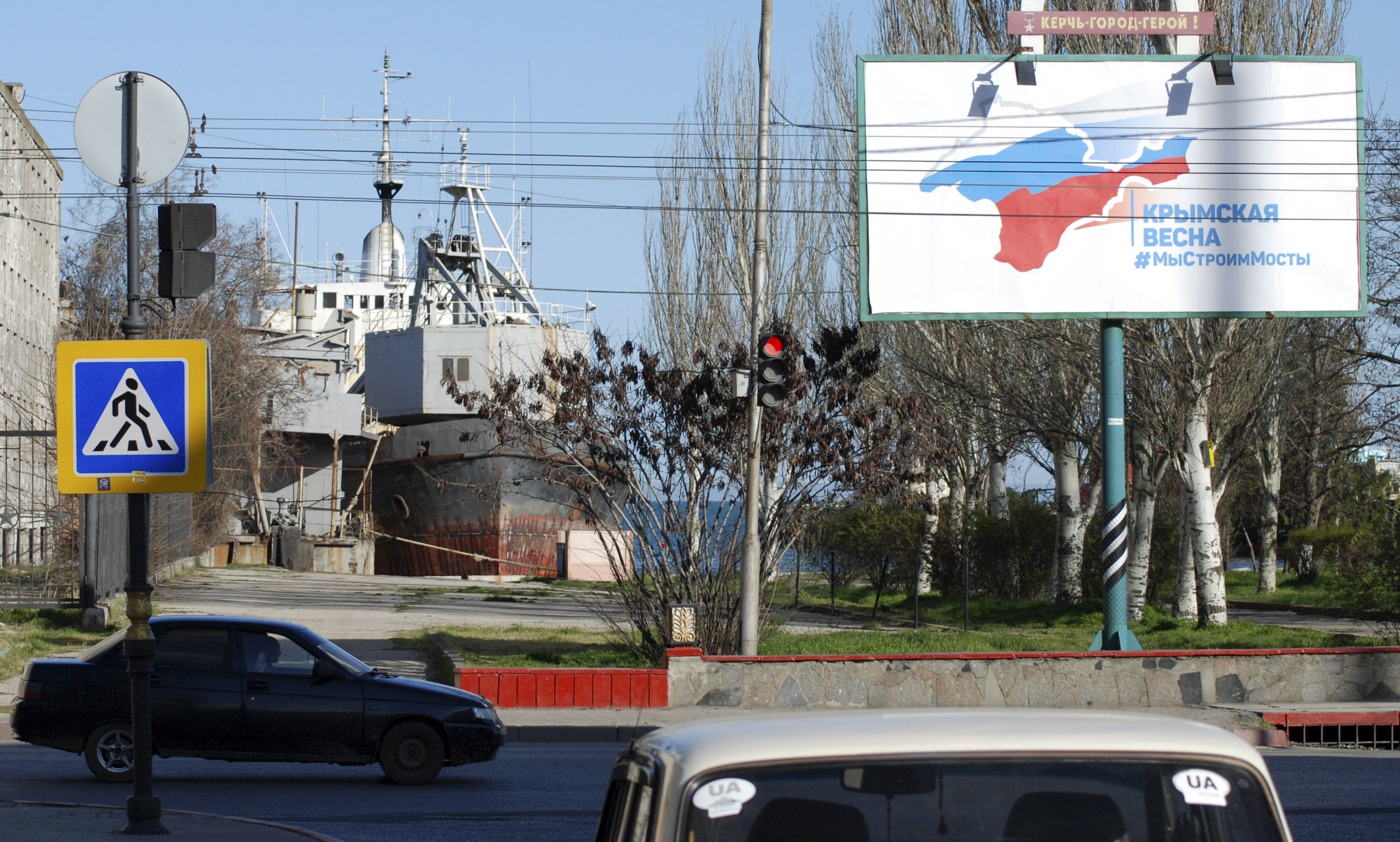
The defense team are trying to make their point that the peninsula was "abandoned" by the post-Maidan authorities, who were at the time engaged in internal political talks on their future positions in the new government instead of fighting for Crimea.
Those who were at the country’s helm in late February 2014 assure that there was no chance to defend the peninsula as too many factors played into Russia's favor. Against this background, politicians from the opposition camp have intensified their rhetoric, striving to receive political dividends from the Yanukovych trial ahead of the upcoming elections, Yevhenia Horyunova wrote in an op-ed for Krym.Realii, the project of RFE/RL.
The very substitution of concepts ("surrender" instead of "aggression") is extremely beneficial to the Kremlin, allowing Moscow to shift accents and the blame for the occupation of a foreign territory.
This Crimea trump card plays a key role in the Yanukovych defense team’s tactics, aiming to convince not so much the court but the Ukrainian people that the post-Maidan authorities failed to take necessary steps to preserve Crimea. "No one tried to talk with the Crimeans, no one tried to resume the dialogue with the representatives of Crimea, no state of emergency was introduced. In fact, all they’ve done was distributing posts and making effort to retain power they illegally gained in February 2014," said Vitaly Serdyuk, the lawyer for Viktor Yanukovych.
This point of view is channeled by Yanukovych supporters, and also by the Opposition Bloc MPs Nestor Shufrych and Vadym Novynsky. Although it is easy to see discrepancies in their claims that potential negotiations with Crimean regional authorities were hindered on the part of Ukraine and that this led to the Crimea seizure.
Read alsoEx-SBU chief's testimony: Russian FSB officers visited Ukraine three times amid Maidan protestsObviously, no negotiations between Kyiv and Simferopol after the seizure of administrative buildings by Russia’s "little green men" could change the situation in Crimea.
The unleashing of hostilities on the peninsula would be extremely beneficial to Putin - this would pave the way to a full-scale war with Ukraine and the restoration of the rule of Mr Yanukovych, who had by then already asked Putin to deploy Russian troops in Ukraine.
At that time, about 40,000 Russian troops and loads of military equipment had already been deployed at the borders with Ukraine. And Putin later recalled that he was ready to employ even nuclear weapons for the sake of Crimea.
Kyiv could not count on military aid from the West after a five-day war in Georgia showed that neither the U.S. nor EU were ready to confront Russia militarily. Therefore, there is no reason not to trust the words of Andriy Deshchytsia (Minister of Foreign Affairs of Ukraine in 2014) about the collective decision not to start a war with Russia in Crimea. "This was a collegial decision of the Security Council, the UN and Ukraine," he recalls, explaining that such a move allowed Kyiv to hold presidential elections, ensuring legitimization of the new government.
Read alsoAide to ex-envoy of Ukraine to UNSC elaborates on Russia’s moves to seize CrimeaThe attempt to accuse the leaders of the Maidan of "surrendering Crimea" is a typical political manipulation which the former Yanukovych allies use to try to absolve themselves of responsibility for a protracted and deliberate capitulation to Russia - ratification of Kharkiv Agreements, which extended Russia’s military presence in Crimea, and allowing free operations of Russian intelligence services (not only in Crimea, but across Ukraine), and generally sabotaging combat readiness of the Ukrainian army.
Central to this manipulation is the substitution of concepts: "aggression" is being replaced by "surrender," shifting the emphasis from Russia's aggressive policy toward the failure of the Ukrainian authorities to preserve the country’s territorial integrity.
As a result, the idea is being imposed upon Ukrainians that it was not Russia that annexed Crimea, it was Ukraine that "surrendered" it.
This method is being used to discredit today’s government in Kyiv, at the same time fighting off a growing nostalgia for Ukraine in Crimea itself as its residents are being convinced that the official Kyiv at that time abandoned the peninsula.
Read alsoWitness in Yanukovych case: Ex-chief of General Staff Ilyin in 2014 compelled troops to defectThe Ukrainian authorities allowed a number of political miscalculations in those tragic February days. But this does not give grounds for shifting the blame on them for the occupation of the peninsula. The Russian military medal "For the Return of Crimea" marks the beginning of the annexation - February 20 - when Viktor Yanukovych was still in power in Kyiv.

